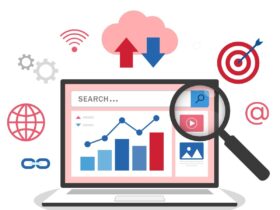Point-of-sale (POS) systems have become a ubiquitous part of modern business operations. They allow businesses to streamline transactions, manage inventory, and track sales data. However, despite their widespread use, there are still many lesser-known facts about POS systems and their impact on businesses.
-
POS systems can help businesses reduce their environmental impact.
In recent years, there has been a growing awareness of the need to reduce our impact on the environment. A Pos system can play an important role in this effort. By eliminating the need for paper receipts, businesses can significantly reduce their paper usage.
In addition, some POS systems can also help businesses track their carbon footprint by monitoring energy usage and suggesting ways to reduce it.
-
POS systems can improve customer experience.
A key benefit of POS systems is their ability to speed up transactions and reduce wait times. This can have a significant impact on customer experience, particularly in busy retail environments.
Many POS systems now offer features such as contactless payments and mobile ordering, which can further enhance the customer experience.
-
POS systems can help businesses manage inventory more effectively.
Effective inventory management is essential for any business that sells physical products. POS systems can help businesses track inventory levels in real-time, making it easier to identify when stock is running low and when it’s time to reorder. This can help businesses reduce the risk of stockouts and ensure that they always have the products their customers want.
-
POS systems can help businesses identify sales trends.
Sales data is a valuable resource for businesses looking to improve their operations. POS systems can provide businesses with detailed information on sales trends, allowing them to identify which products are selling well and which ones are not. This information can be used to adjust pricing, improve marketing efforts, and make other strategic decisions.
-
POS systems can help businesses reduce the risk of fraud.
Fraud is a major concern for businesses of all sizes. POS systems can help reduce the risk of fraud by providing businesses with a secure way to process transactions. Many POS systems now offer features such as EMV chip cards and tokenization, which can help protect businesses from fraudulent activity.
-
POS systems can help businesses save money.
While POS systems may require an initial investment, they can ultimately help businesses save money in the long run. By streamlining transactions and inventory management, businesses can reduce labour costs and improve efficiency.
Further, POS systems can help businesses identify areas where they can reduce costs, such as by identifying products that are not selling well and adjusting pricing accordingly.
-
POS systems can help businesses improve their marketing efforts.
Marketing is essential for any business looking to attract new customers and retain existing ones. POS systems can help businesses improve their marketing efforts by providing them with valuable data on customer behaviour. Through analysing sales data, businesses can identify trends, preferences and buying habits, which can be used to create more targeted and effective marketing campaigns.
-
POS systems can help businesses comply with regulations.
In many industries, there are strict regulations governing how transactions must be processed and recorded. POS systems can help businesses comply with these regulations by providing them with a secure and auditable way to process transactions.
Many POS systems offer features such as age verification and tax calculation, which can help businesses ensure that they are meeting their legal obligations.
-
POS systems can help businesses improve their decision-making.
Effective decision-making is essential for any business looking to succeed in a competitive market. A Pos system can help businesses make better decisions by providing them with valuable data on sales, inventory, and customer behaviour.
This data can be used to identify areas where the business is performing well and areas where improvements can be made. By using this information to inform their decision-making, businesses can make more informed and effective choices about how to run their operations.
Final Thoughts
Overall, POS systems are a valuable tool for businesses of all sizes and industries. By understanding their impact on business and the lesser-known facts about their capabilities, businesses can make informed decisions about which POS system to choose and how to use it to maximise its benefits.












